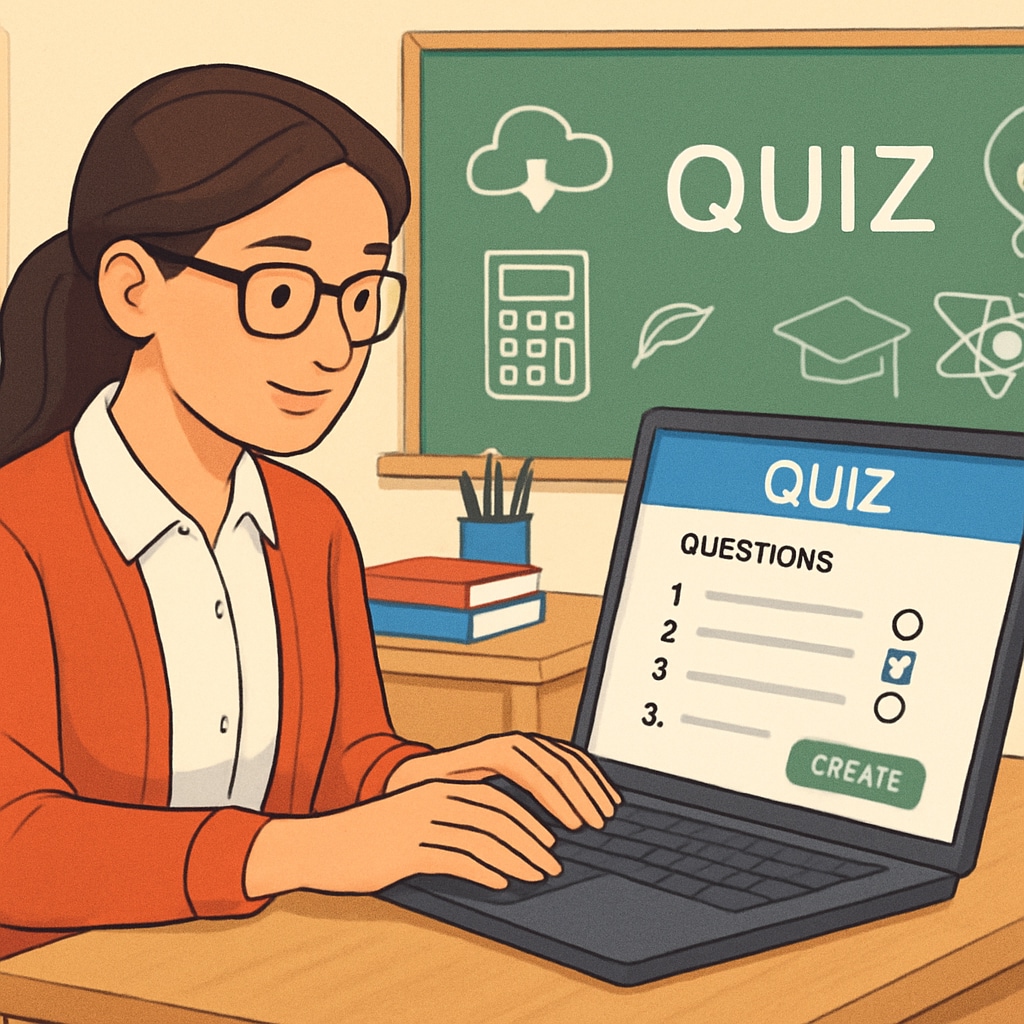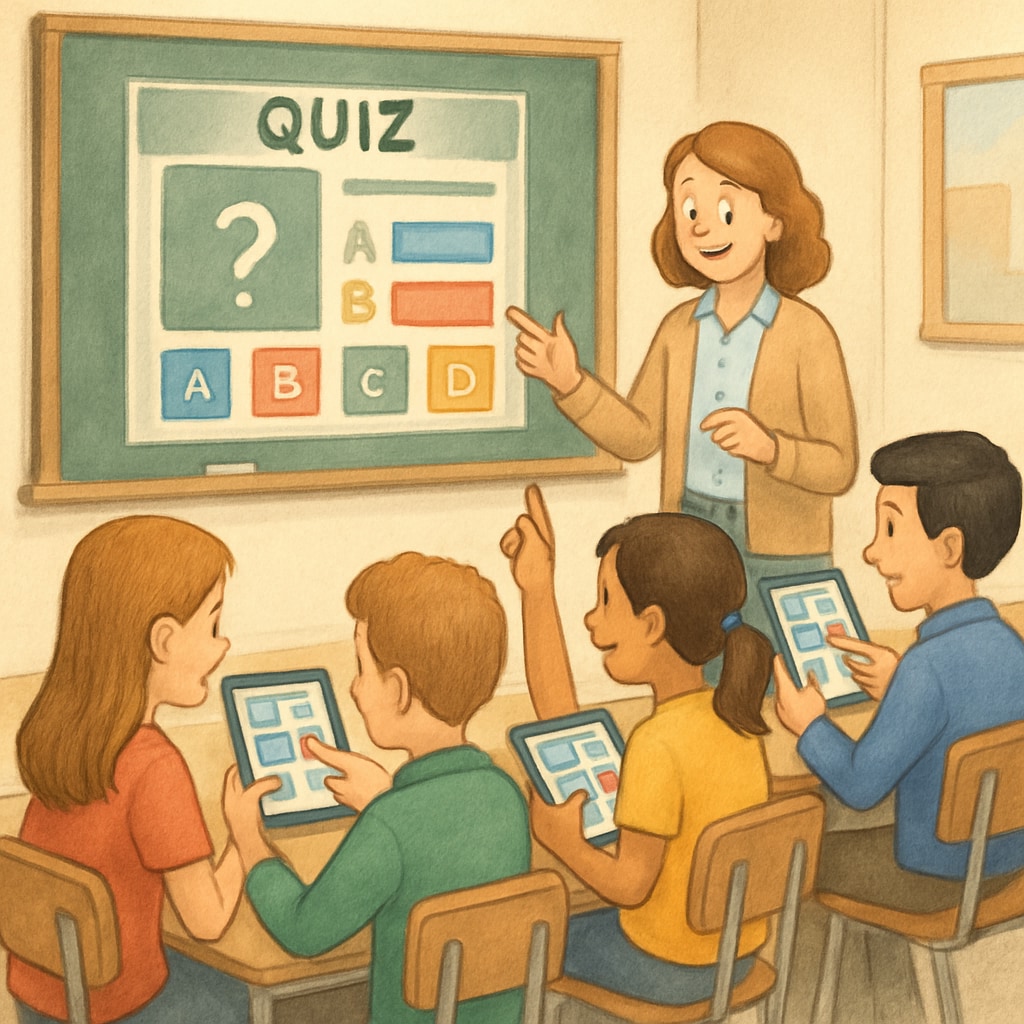In the ever-evolving landscape of education, effective quiz resources for students and teaching tools are essential components for enhancing K12 learning outcomes. With the overwhelming variety of options available, educators often face challenges in identifying the most suitable resources for their classrooms. This article delves into the selection criteria for high-quality assessment tools, reviews trusted platforms, and shares actionable strategies for integrating these resources into teaching practices.
How to Identify Effective Quiz Resources for K12 Students
Choosing the right quiz resources requires an understanding of both student needs and educational goals. Not all tools are created equal, and selecting the best ones involves evaluating their relevance, adaptability, and usability. Below are key factors to consider:
- Curriculum Alignment: Ensure that the quizzes align with your school’s curriculum and learning objectives.
- Customization Options: Look for tools that allow you to create or modify quizzes to suit different student levels and learning styles.
- Feedback Mechanism: Prioritize platforms that offer detailed feedback, enabling students to understand their mistakes and improve.
- User-Friendly Interface: A simple, intuitive design can save time for educators and minimize frustration for students.
- Data Analytics: Opt for tools with robust reporting features to track student progress and identify learning gaps.

Top Platforms Offering High-Quality Quiz Resources
Several platforms have gained recognition for their reliability and effectiveness in providing quiz resources for K12 educators. Below are some of the most recommended options:
- Kahoot!: This interactive platform allows educators to create engaging quizzes that students can answer in real-time, making learning fun and dynamic.
- Quizizz: With its gamified approach, Quizizz enables educators to assign quizzes as homework or conduct live classroom assessments.
- Google Forms: A versatile tool for creating quizzes, collecting responses, and analyzing data seamlessly.
- Socrative: Offers a range of formative assessment options, including quizzes, exit tickets, and polls.
These platforms not only simplify the assessment process but also provide insights into student performance, helping educators tailor their teaching strategies effectively.

Strategies for Integrating Quiz Resources into Teaching
Once you have identified suitable quiz resources, the next step is to integrate them into your teaching practices. Here are some practical tips to maximize their impact:
- Blend with Traditional Methods: Use quizzes to complement traditional teaching methods, such as lectures and discussions.
- Incorporate Formative Assessments: Regularly conduct short quizzes to gauge student understanding and adjust lessons accordingly.
- Promote Collaborative Learning: Encourage group quizzes or peer reviews to foster teamwork and collective problem-solving.
- Leverage Data Insights: Use analytics from quiz platforms to identify areas where students may need additional support.
- Keep It Engaging: Gamify assessments with leaderboards, rewards, or interactive formats to maintain student interest.
By following these strategies, educators can transform quizzes from mere evaluation tools into powerful instruments for learning enhancement and engagement.
The Future of Quiz Resources in K12 Education
As technology continues to evolve, the potential for innovative quiz resources is limitless. Emerging trends such as artificial intelligence (AI)-powered assessments, adaptive learning platforms, and immersive technologies like virtual reality (VR) are reshaping the way students are evaluated. For educators, staying informed about these advancements is crucial to ensure their teaching methods remain relevant and effective.
In conclusion, selecting and utilizing effective quiz resources for students and teaching tools can significantly impact K12 education. By focusing on quality, leveraging trusted platforms, and adopting practical integration strategies, educators can create a robust learning assessment system that benefits both teachers and students.
Readability guidance: This article uses concise paragraphs, clear subheadings, and bullet points to enhance readability. Transition words such as “however,” “therefore,” and “for example” are incorporated for better flow. The content avoids excessive jargon, making it accessible to a broad audience.


